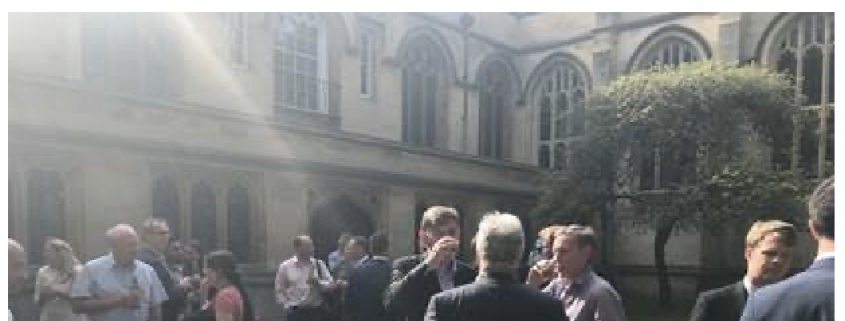Law & Epidemiological Evidence: Double, Toil & Trouble- University of Western Australia Law Review, Vol 49 Issue 1
In late February 2019, I had lunch at Wadham College, Oxford, with Professors Carl Heneghan and Sandy Steel to discuss a seminar on epidemiological evidence and the law. Almost exactly three years later, the results of this seminar at Wadham in July 2019 and a subsequent seminar at DWF London in February 2020 have been encapsulated in an article written by Per Laleng and myself, published in the University of Western Australia Law Review. Given its protracted genesis, the title of “Double, toil and trouble” can have more than one interpretation, however the pandemic at least provides some mitigation in this regard.

As you read through the 15 articles over 475 pages, you will notice the wide range of the authors, to include leading academics, very senior judges and even some practitioners. Incidentally, if you do not have the time to read all 15 articles when you have finished ours, I would recommend Richard Wright’s contribution, which offers remarkable clarity in a very difficult area.
Prior to being invited to submit this article to the editors in Western Australia, we had sent it to two leading academic journals in this country. Both of them considered that the article had too much of a practical focus to be suitable for publication. One of the editors considered that there was insufficient “technical law”. I am not quite sure what “technical law” means, but this does not stop me being instinctively opposed to it.
Traditionally, it was considered a positive feature of the common law that its awareness of the reality of experience made it accessible to a broad range of public opinion, and at least to a significant extent acceptable. The man on the Clapham omnibus was never conclusively identified, but we can be reasonably sure he was not a technical lawyer.
Technical law appears to have developed through the intellectual parochialism of academia in the United Kingdom. Admittedly this excessive and often unfocused complexity in the law does have the attraction of inducing a degree of intellectual terror amongst certain sections of the judiciary. However it represents a damaging movement away from the traditional strengths of the common law. Reading many judgments now, it is quite apparent that their content and methodology has no resonance at all with the vast majority of the population who do not immerse themselves in technical law. Further, judgments inevitably become more extensive reflecting the breadth of argument before the Courts. Such litigation is now often conducted at eye-watering cost, affordable by major corporations and until recently oligarchs , but with the result that resort to the courts is prohibitively expensive for vast sectors of the population .
It is striking that admiring remarks are often made in leading appellate judgments in the Court of Appeal and the Supreme Court about Australian decisions which often appear to be much more concise and focused. It could be reasonably observed that the Australian Courts have remained much closer to the true ethos of the common law. The Editors of the Western Australian Law Journal do not appear to draw any distinction between law in practice and technical law. It is also conspicuous that notwithstanding the considerable time and effort put into producing this Special Edition, it is open-access.
Notwithstanding the toil and trouble in dealing with epidemiological evidence Pro Vide law will continue with its programme of seminars and writing on legal issues. On 9th June we are holding a seminar looking at Montgomery after seven years with clinicians, academics and practitioners entitled “Montgomery. Still too much information?” We held a seminar in 2015 on this subject. Seven years down the line is an opportune time to review the implications of the Supreme court decision for clinical practice and legal liability. If you are interested in attending this event either in person at offices of Weightmans Liverpool or virtually you can let us know.
Charles Feeny




Leave a Reply
Want to join the discussion?Feel free to contribute!